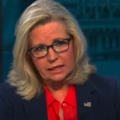This past Thursday marked a monumental moment in international diplomacy with the largest prisoner swap since the Cold War. The U.S., Russia, and several European countries were involved in this massive exchange, and we’ve got some great news: Evan Gershkovich, Paul Whelan, and Alsu Kurmasheva are finally returning to American soil. They were wrongfully detained in Russia, and their release is a huge relief.
- Evan Gershkovich: The Wall Street Journal reporter was locked up on dubious espionage charges. After being sentenced to 16 years, he’s now coming home where he belongs.
- Paul Whelan: A former Marine arrested in 2018, also on trumped-up espionage charges. He was sentenced to 16 years, and his release is a victory for justice.
- Alsu Kurmasheva: A journalist with both U.S. and Russian citizenship, who was held for over six years under flimsy charges.
It’s a clear win that these innocent Americans are finally free. Our hearts go out to them and their families who have suffered under unjust imprisonment.
But Was This Swap Really Fair?
While it’s wonderful to see our fellow citizens coming home, let’s take a closer look at what we gave up in this exchange. Russia released innocent Americans, but the criminals we let go are a different story. This trade raises some serious questions about the fairness of this swap.
Criminals Released by the U.S.
Here’s the troubling part: In exchange for our innocent citizens, the U.S. has released several individuals with serious criminal backgrounds:
- Vadim Krasikov: Known as a hitman, Krasikov was convicted in Germany for murder and is suspected of other heinous crimes. His release could endanger lives and undermine global security.
- Roman Seleznev: This Russian hacker was sentenced to 27 years in the U.S. for credit card fraud and cybercrimes. Letting him go could jeopardize our cybersecurity.
- Vladislav Klyushin: A businessman involved in hacking schemes, Klyushin was sentenced to nine years in the U.S. His criminal activities have caused significant harm.
- Vadim Konoshchenok: Detained for smuggling technology to Russia’s military, Konoshchenok’s release poses a direct threat to our national security.
A Question of Balance: Diplomacy vs. Security
This swap shows the complexity of international negotiations. Yes, it’s a significant diplomatic achievement to bring our people home. But did we get the short end of the stick by releasing individuals who could harm our interests?
Our leadership needs to be stronger in future negotiations. It’s crucial that we ensure such trades don’t put our security at risk. The balance between securing the release of innocent citizens and not compromising national safety is delicate and must be handled with greater care.
Diplomatic Success or Dangerous Trade-off?
While the return of innocent Americans is a major success for diplomacy, the release of dangerous criminals is deeply concerning. This swap highlights a troubling imbalance. It’s not just about celebrating the return of our citizens; it’s about ensuring that such negotiations don’t undermine our safety or global standing.
Final Thoughts
We should be thrilled that innocent Americans are coming home, and international diplomacy has worked to that end. However, the fairness of this swap is in question. Our leaders must be more vigilant to avoid unequal deals that put our security at risk. This situation calls for a stronger, more strategic approach in future negotiations.
What’s your take on this prisoner exchange? Did we get a fair deal, or is this a dangerous trade-off? Share your thoughts in the comment section below!
Having trouble? If your comment doesn’t post, submit another comment right after it that says: Jimmy, please approve my comment that didn’t post.














Use mercenaries & Ex Vets for hostage release:
The Expendables
The Professionals, 1966 WW1 Western
A Team
etc. worldwide
$wap was spelled wrong in the article.